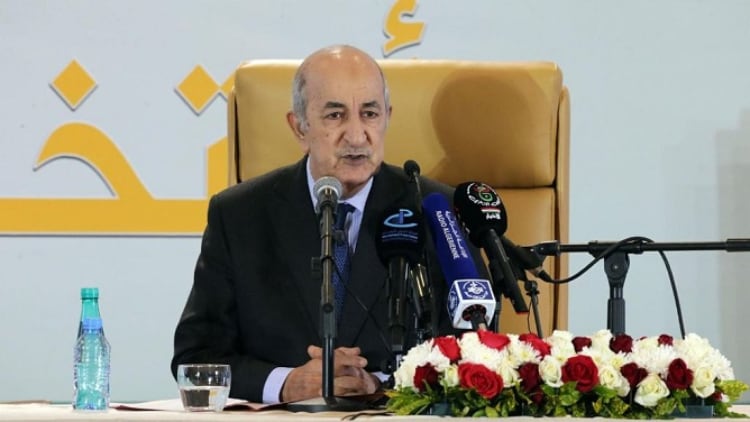The Diplomat
The Algerian government yesterday reproached Spain, in a new communiqué, for having provoked the “regrettable interference” of the EU following the announcement of the breaking off of trade relations decided by Algiers, and affirmed that this is a strictly “bilateral” issue that does not have to affect the rest of the EU members.
Specifically, the Algerian Foreign Ministry criticises Spain for raising the issue in Brussels and for amplifying the thesis of its national diplomacy ‘to the detriment of preserving the interests of the European Union, within which Algeria has the honour of having many friends and partners’ and ‘with the vain attempt to put pressure’ on Algiers.
Algeria insists that the EU’s reaction includes “hasty and unfounded statements”. “The haste and bias of these statements highlight the inappropriate nature of their content, as they concern a political disagreement with a European country of a bilateral nature, with no impact on Algeria’s commitments vis-à-vis the European Union,” the communiqué notes.
“The alleged suspension of trade and investment relations with Spain contained in these official declarations of the European Union is hastily invoked without any basis, and the authorities of the European Union have in this case no legal basis to establish their competence in this matter,” it adds. For this reason, Algiers “rejects” the activation of a European consultation mechanism for a “collective reaction”.
The North African country stresses that it has “always” fulfilled its commitments in the framework of the Association Agreement with the European Union, and thus rejects as “fanciful and malicious” the “insinuations” on the question of gas supplies to Spain for which “the President of the Republic himself has had to solemnly affirm Algeria’s determination to fulfil its contractual obligations”. Algiers considers that this issue has to do with the ‘strictly commercial’ relations of the companies of both countries.
Moreover, Algeria defends its sovereignty to terminate the Treaty of Friendship, Good Neighbourliness and Cooperation that it had maintained until now with Spain ‘which responds to legitimate considerations that essentially refer to the fact that the signatory has dissociated itself from the essential obligations and values enshrined in this Treaty, thus assuming the responsibility of emptying this legal instrument of its substance and questioning its relevance in the relations between the two parties’, it argues.
Government and opposition clash of reproaches
On the domestic front, the election campaign for the Andalusian elections yesterday became the stage for the government and the main opposition party to engage in reproaches about the crisis with Algeria.
The deterioration of relations with Algeria was present at the rallies of both the leader of the PP, Alberto Núñez Feijóo, and the head of the Executive and secretary general of the PSOE, Pedro Sánchez.
In the Malaga town of Cártama, Sánchez took the opportunity to criticise the PP for taking the Algerian side instead of supporting Spain. Without mentioning the North African country, which last Thursday suspended the Treaty of Friendship, Cooperation and Good Neighbourliness with Spain and announced the freezing of trade with our country, the President of the Government reproached the PP: “If a third country puts pressure on Spain and the European Union supports Spain, they support the third country that puts pressure on us”.
In Moncloa they are very annoyed with the PP’s reaction, showing sympathy for the Algerian attitude, blaming it on the government’s clumsiness in managing relations with Morocco by changing its position on the Sahara.
Meanwhile, in the PP, they are attacking the foreign policy being developed by Sánchez’s government, and yesterday Núñez Feijóo lamented from Antequera, what he described as “destruction”, referring to the “unprecedented about-turn” on the Sahara, which, in his opinion, not only has not solved the problems with Morocco, but has opened a serious diplomatic crisis with a strategic ally for Spain, such as Algeria. “The European Union has had to come and sort it out”, he said, alluding to the fact that Brussels has warned that it is prepared to “confront any type of coercive measure” taken by Algiers against one of its member states.
According to Feijóo, the crisis with Algeria puts “at risk 2 billion euros in exports by our companies and 4.8 billion euros in gas supplies”.





